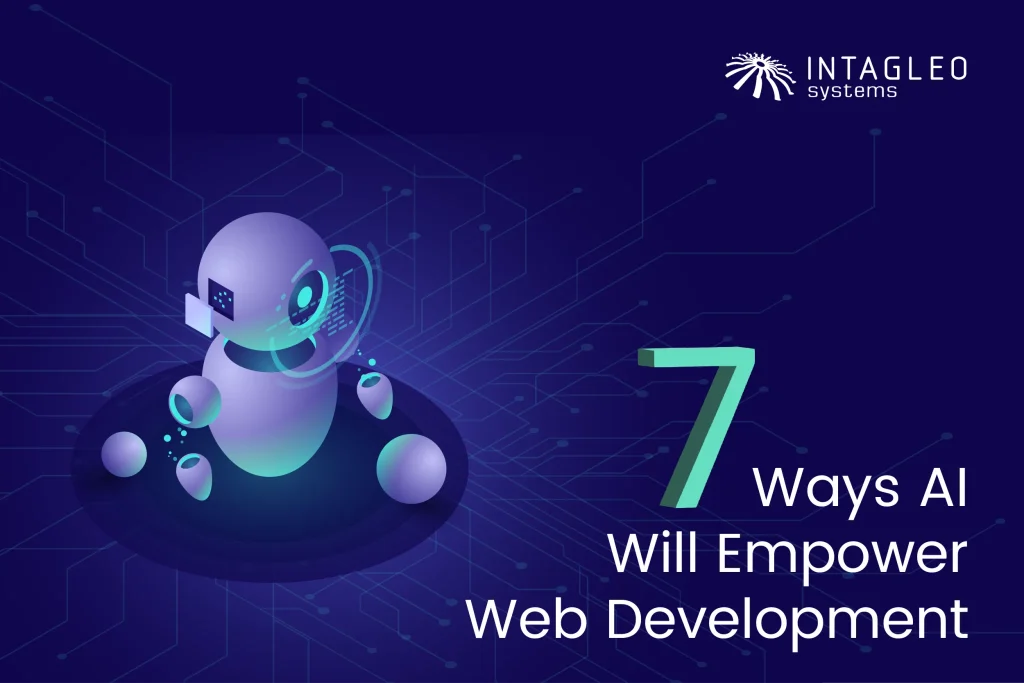Technology advancements provide great opportunities for corporations, governments, and institutional structures to increase productivity, develop and reinvent products, and benefit society’s well-being. While it is impossible to foresee how disruptive innovations will unfold, administrators may prepare in advance by tracking the development of new technologies, planning how organizations can use them, and understanding the elements that influence innovation and growth.
Technological advancement has always been dynamic. Futurist Peter Diamandis predicts that as technological advancements have been reshaping a wide range of business sectors like health, transport, energy, material sciences, etc. more progress will be made in the coming decade. This progress would evidently be more than that of the last century. Corporate leaders, however, struggle to determine which trends are significant and will yield maximum rewards.
According to the analysis by McKinsey & Company, there are top ten technologies that are significantly drawing the attention and funding of investors and technologists. Recognizing the effects of these technological developments on businesses and the individuals whose jobs will be influenced is critical to avoiding the negative consequences of technological shifts.
Here’s a rundown:
1. Process automation & virtualization
As upcoming process automation and virtualization grow more ubiquitous in the future decade, half of all existent tasks could be automated. According to McKinsey, by the year 2025, the number of devices connected to Industrial IoT will expand to more than 50 billion. Moreover, other technologies like automation, 3D printing, robots, etc. will produce data up to 79.4 zettabytes per year.
2. The future of connectivity
Growth and efficiency within industries can be promoted by a wide range of digital solutions. These solutions being powered by low Earth-orbit satellites, wireless power networks, 5G/6G cellular networks, and many more have the potential to produce significant outcomes.
Moreover, as 5G and IoT enable accelerated digital connectivity, there is a high chance to generate an increased economic value. It is predicted that improving connectivity in transport, manufacturing, healthcare, and retail could boost global GDP by up to $2 trillion by 2030. In the next decade, among the technological breakthroughs that would be closely observed 5G and IoT would be having the most attention. In the corporate landscape, significant developments are expected to rise through the promotion of broader network availability and functionality. These developments would be ranging from the digitization of production i.e. through wireless control of mobile tools, robots, and machines to decentralization of energy distribution and remote monitoring of patients.
3. Distributed infrastructure
As part of a global IT architecture, 70% of businesses use hybrid-cloud or multi-cloud systems. Which is, that data and processing could be processed on the cloud but made available to devices more quickly. This significant technological trend will evidently assist businesses in reducing complexity, strengthening cybersecurity defenses, increasing flexibility and agility, and saving money.
4. Next generation computing
For assistance in looking for solutions to prevailing challenges that have baffled science for the past few years and also enabling more opportunities for the corporate sector, next-generation computing will definitely play a massive role. It encompasses a variety of far-reaching innovations, ranging from quantum AI to entirely autonomous vehicles, which won’t be a problem for all businesses.
To prepare for the next generation of computing it is necessary to determine where your industry stands – in the first-wave industries or the more advanced industries like logistics, materials, travel, global energy, and finance. It is also vital to understand what the business relies on so that the data is protected through the transition to quantum cryptography.
5. Applied artificial intelligence (AI)
AI is at the top of the charts for being a significant technological trend. Of course, we’re still in the early stages of research, but as technology advances, AI will be utilized to develop more tech-based tools, for example, training machines to recognize patterns and then act upon what it has discovered. According to McKinsey, by 2024, AI-generated speech will account for more than half of all human-computer interactions. While businesses are still looking for effective methods to employ AI, any organization may derive good value from AI if it’s deployed successfully and in a repeatable fashion.
6. The future of programming
Brace yourselves for Software 2.0, in which neural networks and machine learning will write the code and develop new software. According to McKinsey, this tech shift enables the quick development and spread of new data-rich, AI-driven solutions that can evidently result in the development of more powerful and effective software programs. It will subsequently allow the existing coding and software techniques to be standardized and automated.
7. Trust architecture
In 2021, IT Governance reports 1,243 security events, accounting for nearly 5.1 billion breached records – an 11% increase over 2020. Despite breakthroughs in cybersecurity, criminals are intensifying their efforts.. Trust architectures, an emerging technological trend, will aid in the fight against cybercrime. Trust architectures, in addition to minimizing the risk of breaches, reduce the cost of complying with security requirements, cut the operating and capital expenditures connected with cybersecurity, and enable more cost-efficient transactions, such as between buyers and sellers.
8. Bio-revolution
A significant impact on human lives and economies is promised due to the convergence of biological science advancements. This is to affect industries that are ranging from agriculture and health to materials, energy, and consumer products. The bio revolution, powered by artificial intelligence, DNA sequencing, and automation, promises the development of, genetically based food and exercise recommendations, hyper-personalized pharmaceuticals, and gene therapies. These technological advances will create new marketplaces while also raising serious ethical concerns. Organizations must measure their biological quotient (BQ)—their understanding of biological science and its repercussions to then move to the next step of deciding how much funds would be used for biological technologies and whether to incorporate them into their existing research and development or to collaborate with science-based start-ups.
9. Next-generation materials
Materials science advancements have the potential to revolutionize numerous industry areas. For example, Graphene is 200 times stronger than steel. It’s also a good conductor and has the potential to transform semiconductor efficiency. Another is molybdenum disulfide, which is already utilized in flexible electronics. By altering the economics of a wide range of products and services, next-generation materials with much-improved efficiency in numerous standard application areas may well alter industry dynamics and reorganize businesses within them.
10. Future of Cleantech trends
Cleantech trends revolve around renewable energy, cleaner transportation, energy-efficient structures, and sustainable water usage. As the costs of cleantech decrease, their use grows more prevalent, and their impact is felt across a growing variety of industries. Companies must plan operational quality improvement pertaining to technology development, procurement, production, and cost reduction to keep up with increasing business-building prospects.
We are approaching an era of constant and rapid innovation, in which various technological trends feed into one another to produce radical transformation. Intagleo can assist you in harnessing the potential of these trends to make your business more efficient, effective, and reliable. Contact us today to learn more!


